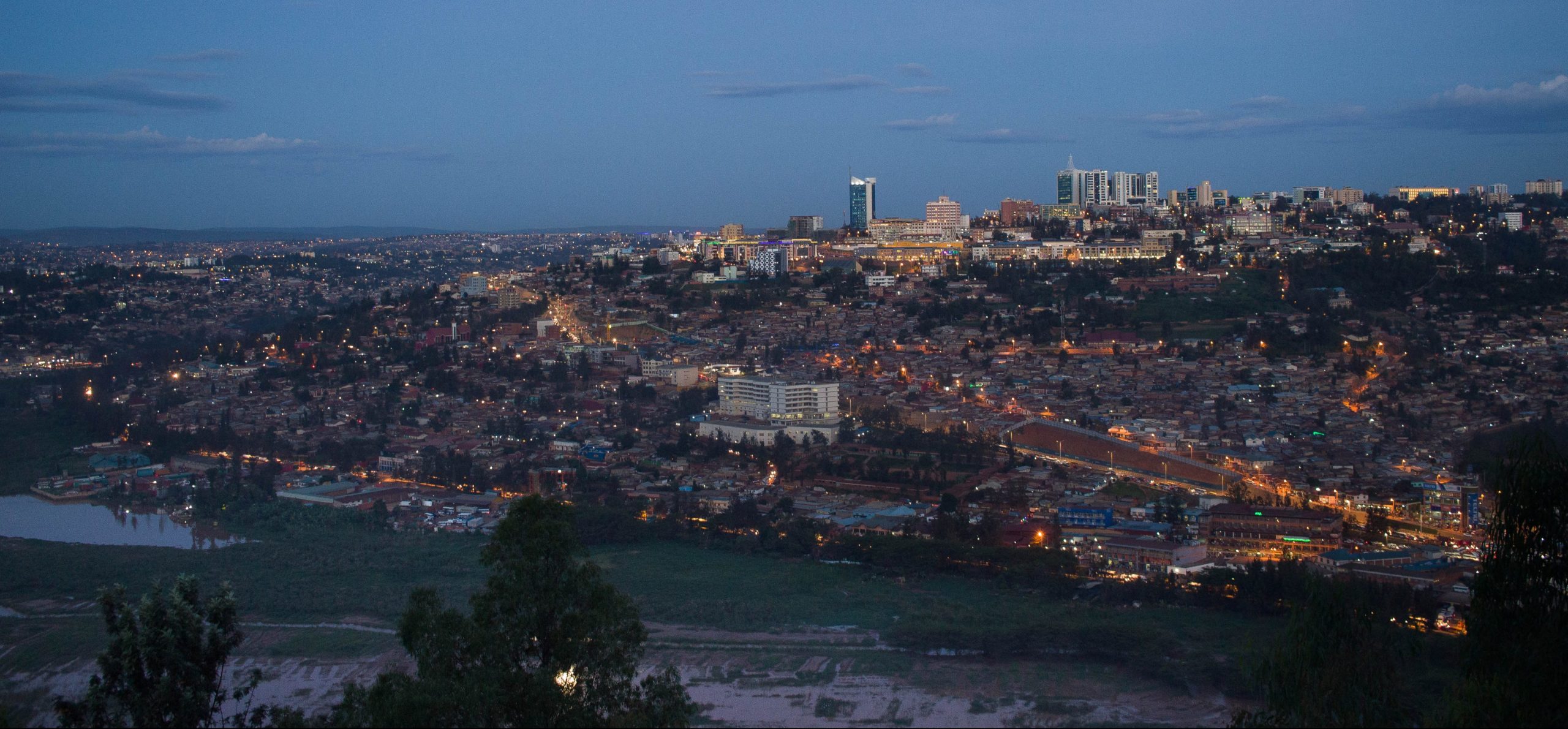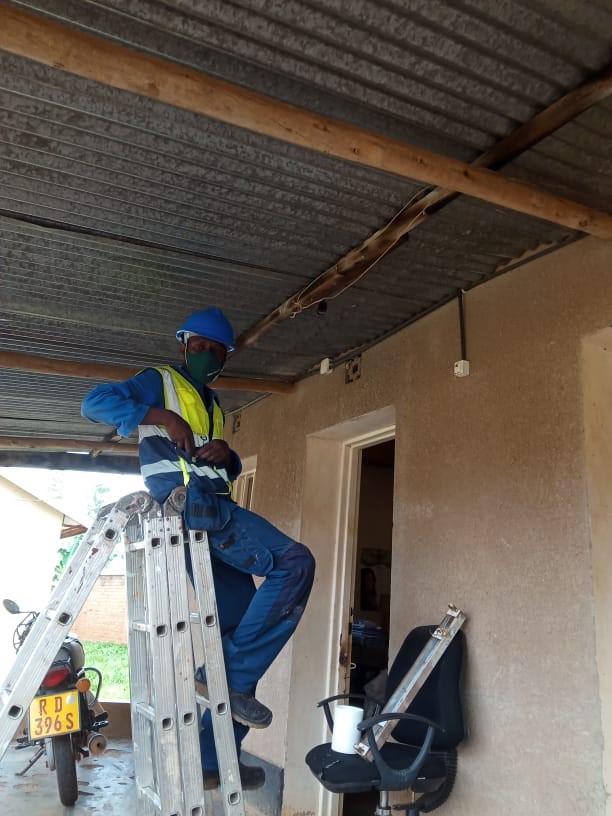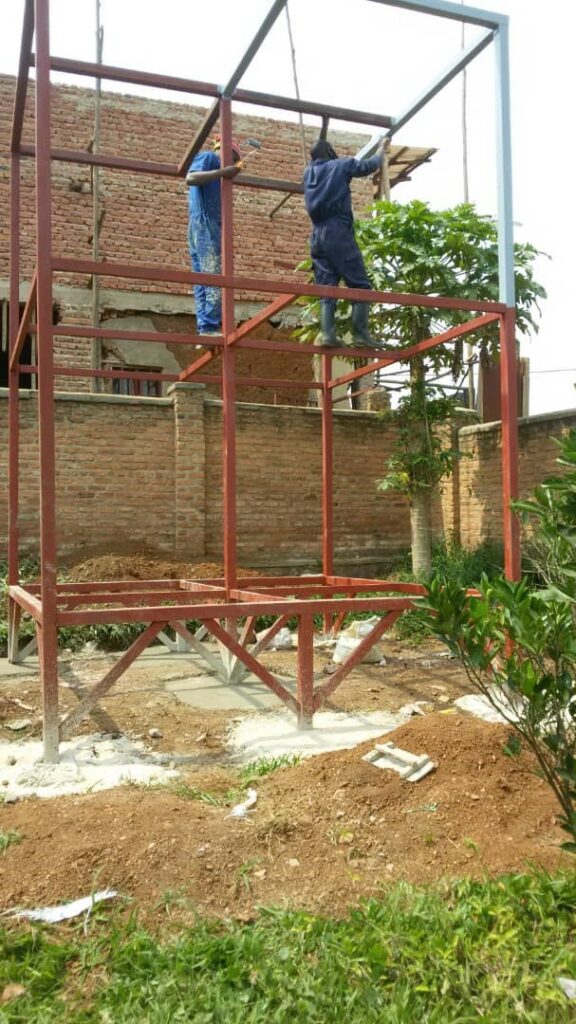4 March 2021
Rwanda upgrades healthcare centres as part of green economic recovery
The centres in Kigali and Muhanga are partnering with Urban-LEDS II to improve resource-efficient access to water and electricity. These upgrades will respond to the pandemic in a low-emission, climate-friendly way and provide running hot water to a maternity ward.



While there is currently a strong focus in cities to increase their healthcare capacity, it is key to do so in ways that limit emissions and build a city’s climate adaptive capacity to ultimately create cities that are not only resilient to unexpected shocks like the COVID-19 pandemic, but also the inescapable impacts of climate change. The Urban-LEDS II project specifically supports cities to create low emission development strategies and aptly designed two of its pilot projects on improving the water and electricity access at two healthcare centres in the City of Kigali and the District of Muhanga in ways that limit emissions.
To avoid the risk of COVID-related delays holding up implementation, ICLEI Africa, a partner on the project, appointed a team of subcontractors and an implementing agent for the two healthcare centres. Installation began in December 2020, and is expected to reach completion by mid-2021.
Healthcare centres require alternative resources and funding
To optimise the provision of health services, health centres need adequate access to water and energy. Given the rapid urban population growth in Rwanda, demand for water and energy for day-to-day operations of health centres will increase to adjust to the increasing demand of health services. However, this will incur a significant increase in operational costs that will be financially unsustainable for a health system which is not yet fully self-financed. It is therefore necessary to implement resource-efficient systems and make use of resources from alternative sources for reduced costs and more sustainable service provision.
It is also necessary to explore alternative sources of funding to implement resource-efficient systems. The Muhanga District and City of Kigali are using the Urban-LEDS II pilot projects to improve the quality of health services at the Gitarama and Gahanga Health Centres, respectively, by increasing the water management systems and energy efficiency on site for sustainable health provision. Importantly, this will further assist both administrations to build back better as a critical component of the post-COVID-19 economic recovery and broader climate change resilience.
Pilot projects demonstrate benefits of low-emission development approach
Engagement with the districts originally identified the Gitarama and Gahanga Health Centres as appropriate sites to demonstrate the benefits of climate resilient services at healthcare centres. The pilot projects include the following at each health centre:
- Water storage: Rainwater harvesting tanks that connect to the internal reticulation system for day-to-day uses of both non-potable and potable (filtered) water.
- Energy: a number of energy-efficient lighting solutions including solar streetlights and energy-efficient bulbs, as well as high-pressure solar water heaters.
These energy interventions will decrease the cost of lighting incurred by the health centres, and the provision of hot water is essential, particularly to the Gitarama Health Centre’s maternity ward.
In order to make a case for scaling these pilot projects, the project team will collect data on the impact of the installations. Evidence-based monitoring (a key criterion of applications for climate finance) will include the installation of water and energy metres to collect data for measuring the resource requirements and usage.
It is also necessary to explore alternative sources of funding to implement resource-efficient systems. The Muhanga District and City of Kigali are using the Urban-LEDS II pilot projects to improve the quality of health services at the Gitarama and Gahanga Health Centres, respectively, by increasing the water management systems and energy efficiency on site for sustainable health provision. Importantly, this will further assist both administrations to build back better as a critical component of the post-COVID-19 economic recovery and broader climate change resilience.
Health centres support a community’s most vulnerable and need to be resilient
Healthcare systems are core components of climate-resilient communities, and Rwanda’s progress in improving access to health services has demonstrated the principles of a universal access healthcare framework. Health centres are required to be the first port-of-call for the most vulnerable community members, namely children, women, the elderly, and those living in poverty who most acutely experience the impacts of climate change. The value of a resilient community healthcare system has been brought to the fore during the current Covid-19 Pandemic and the responses to this. There is therefore the opportunity for health centres to not only reduce greenhouse gas emissions associated with their services and be a core component of the adaptation response to climate change, but to also contribute to the country’s COVID-recovery plan in a sustainable manner (a pathway explicitly committed to by the Minister of Environment).
These pilot projects contribute towards the achievement of Rwanda’s National Strategy for Transformation (NST 1), in increasing “universal access to basic infrastructures such as water and electricity” whilst aligning with the country’s Green Building Minimum Compliance System; they also deliver on the Health Sector Strategic Plan (HSSP4)’s intention to build a financially sustainable health system.
Replicating and upscaling low-emission healthcare centre upgrades across Rwanda
Urban-LEDS ll will further support this project by exploring opportunities for upscaling and replication of this work. In addition to reaching out to the country’s Green Bank, FONERWA, (who sits on the project’s National Project Advisory Group) around the potential for this, the team will develop and submit an application to the Transformative Actions Program (TAP). If successful, this project could serve as a replicable blueprint for other health centres and District hospitals across Rwanda, and secure funding in the future for similar interventions. Successes from such an intervention could also be scaled more broadly to other districts, setting a precedent for ‘green’ health centres in Rwanda.
These pilot projects contribute towards the achievement of Rwanda’s National Strategy for Transformation (NST 1), in increasing “universal access to basic infrastructures such as water and electricity” whilst aligning with the country’s Green Building Minimum Compliance System; they also deliver on the Health Sector Strategic Plan (HSSP4)’s intention to build a financially sustainable health system.




